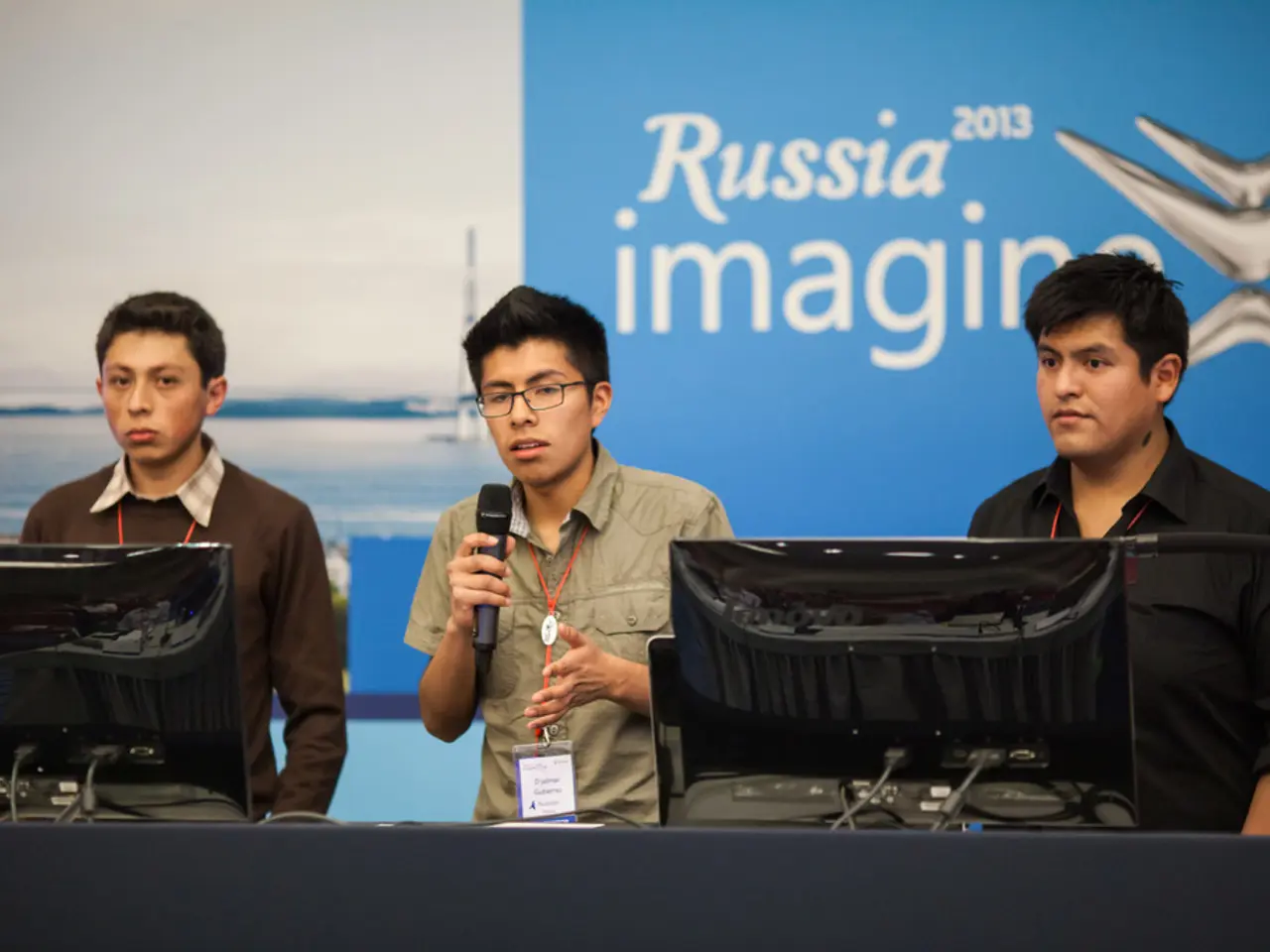Grave Security Concerns Unveiled - "Internet Authority of China reveals security concerns in interviews with Nvidia"
In the midst of ongoing negotiations between the U.S. and China, Nvidia, a key player in the global tech market, is facing talks with the Chinese Internet Regulator over serious security issues. The crux of the matter revolves around Nvidia's AI chip, the H20, and potential built-in tracking or remote access backdoors that could put Chinese user data and networks at risk.
China's concerns stem from the possibility that the H20 chip may contain 'back-door safety' risks, potentially enabling unauthorized remote control or data tracking. These worries are partly fuelled by a U.S. bipartisan bill proposing that AI processors incorporate technology to verify chip location prior to export, a measure aimed at preventing the smuggling of advanced chips into China.
The H20 chip is a scaled-down version of Nvidia's H100, developed specifically to comply with U.S. export restrictions. However, its sales in China are now under scrutiny due to fears of embedded tracking features. The Cyberspace Administration of China (CAC) has formally summoned Nvidia to explain and provide evidence about these alleged security vulnerabilities.
The CAC's inquiry is a response to reports of serious security problems and expert warnings about mature remote control technology related to Nvidia chips. While the regulator has not publicly disclosed its information sources, the inquiry underscores China's growing concerns about potential security risks associated with advanced AI chips.
Nvidia's CEO, Jensen Huang, emphasized the company's intention to continue serving Chinese customers during a visit to Beijing in early July. However, the escalating tensions between the U.S. and China are influencing the interactions between Nvidia and the Chinese authorities.
It is worth noting that the geolocation functions in advanced AI chips, which have been a point of contention between U.S. lawmakers and manufacturers like Nvidia, are not explicitly mentioned in this paragraph. However, they were a concern in earlier discussions.
In response to the CAC's summons, Nvidia announced it would resume sales of the "H20" chip in China after U.S. authorities eased some export restrictions. The company is expected to address the concerns raised by the Chinese authorities and provide assurances about the security of its products.
As the tech industry continues to evolve, the relationship between Nvidia and the Chinese authorities will be a case study in navigating the complexities of international business and security concerns. The outcome of these talks could have far-reaching implications for both Nvidia and the tech industry as a whole.
[1] Wübbeke, Jost. "China's Huawei Ban: What Does It Mean for Nvidia?" Sinolytics, 23 July 2021, https://www.sinolytics.com/chinas-huawei-ban-what-does-it-mean-for-nvidia/
[2] Lee, Yiming. "China Summons Nvidia Over Security Concerns About AI Chip." Bloomberg, 24 July 2021, https://www.bloombergquint.com/onweb/china-summons-nvidia-over-security-concerns-about-ai-chip#gs.pz8xj1
- The ongoing negotiations between the United States and China have led to a significant referral for Nvidia, a key player in the global tech market, as they address security concerns surrounding their AI chip, the H20, with the Chinese Internet Regulator.
- These security issues revolve around the possibility of the H20 chip containing back-door safety risks, which could facilitate unauthorized remote control or data tracking, a concern amplified by the U.S. bipartisan bill addressing purported need for chip location verification prior to export.
- The Cyberspace Administration of China (CAC) has taken a serious stance on these alleged security vulnerabilities, have summoned Nvidia to provide evidence and address their concerns, reflecting China's growing apprehension regarding potential risks associated with advanced AI chips.
- The resolution of these talks between Nvidia and the Chinese authorities will serve as a business case study in international relations, particularly involving the technology, politics, and cybersecurity spheres, and could have far-reaching implications for the tech industry as a whole.




